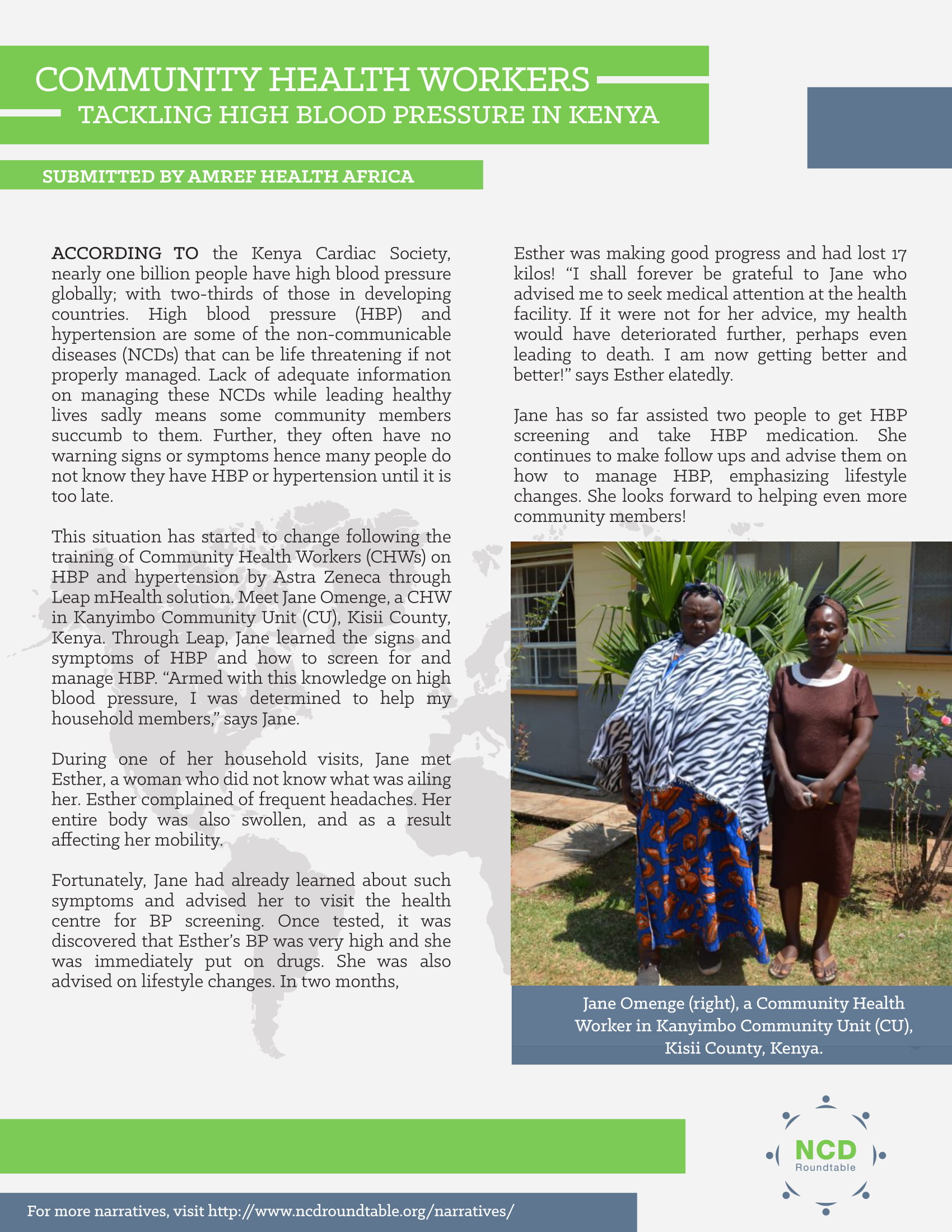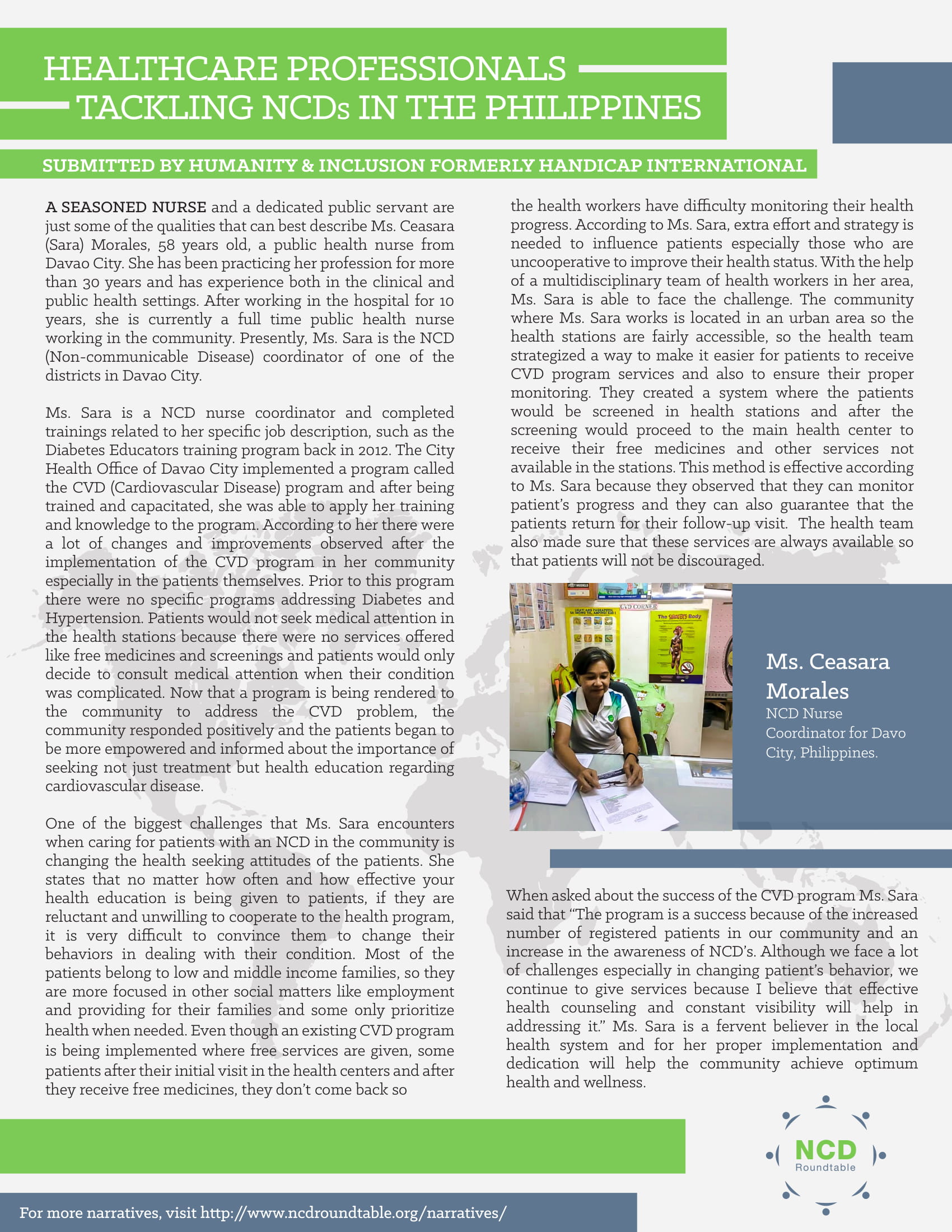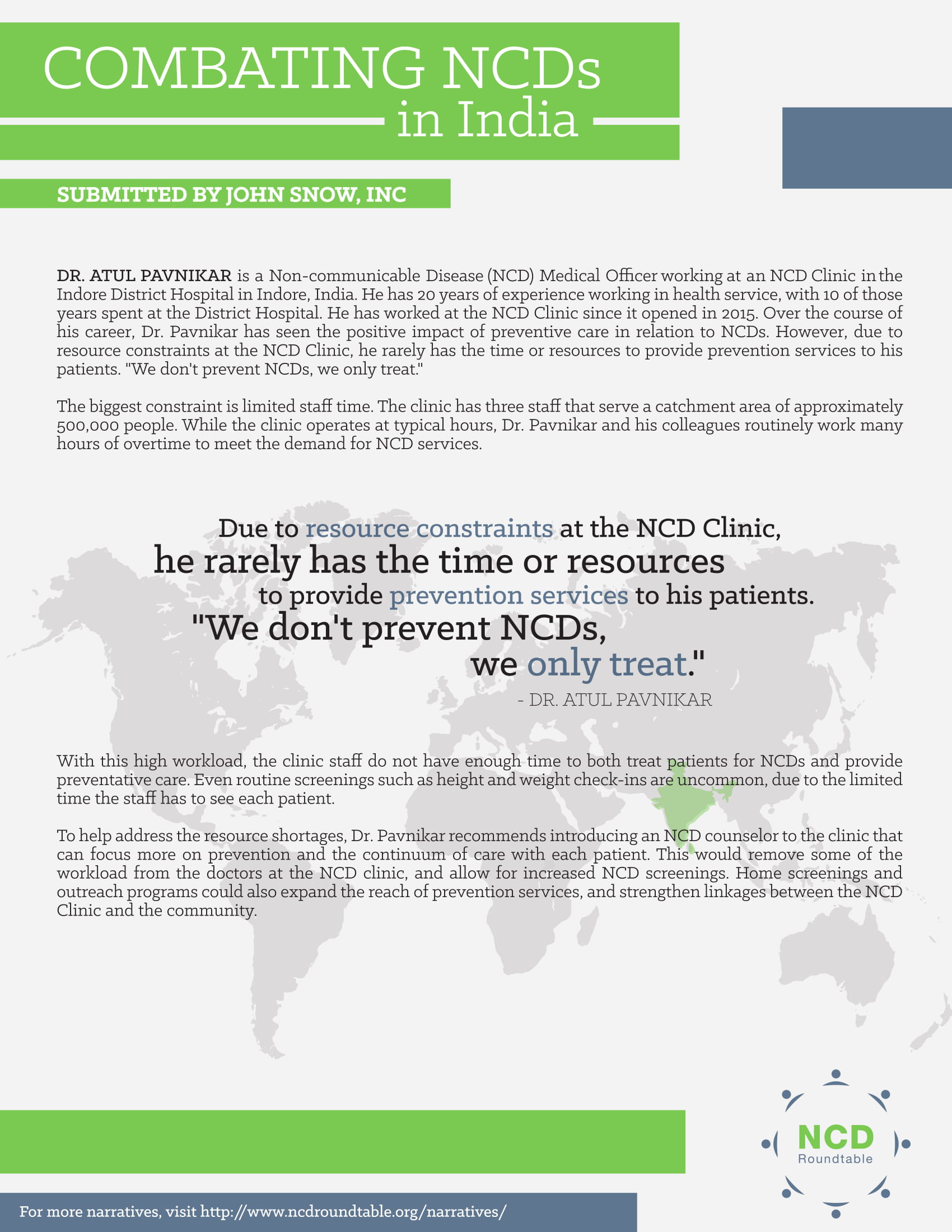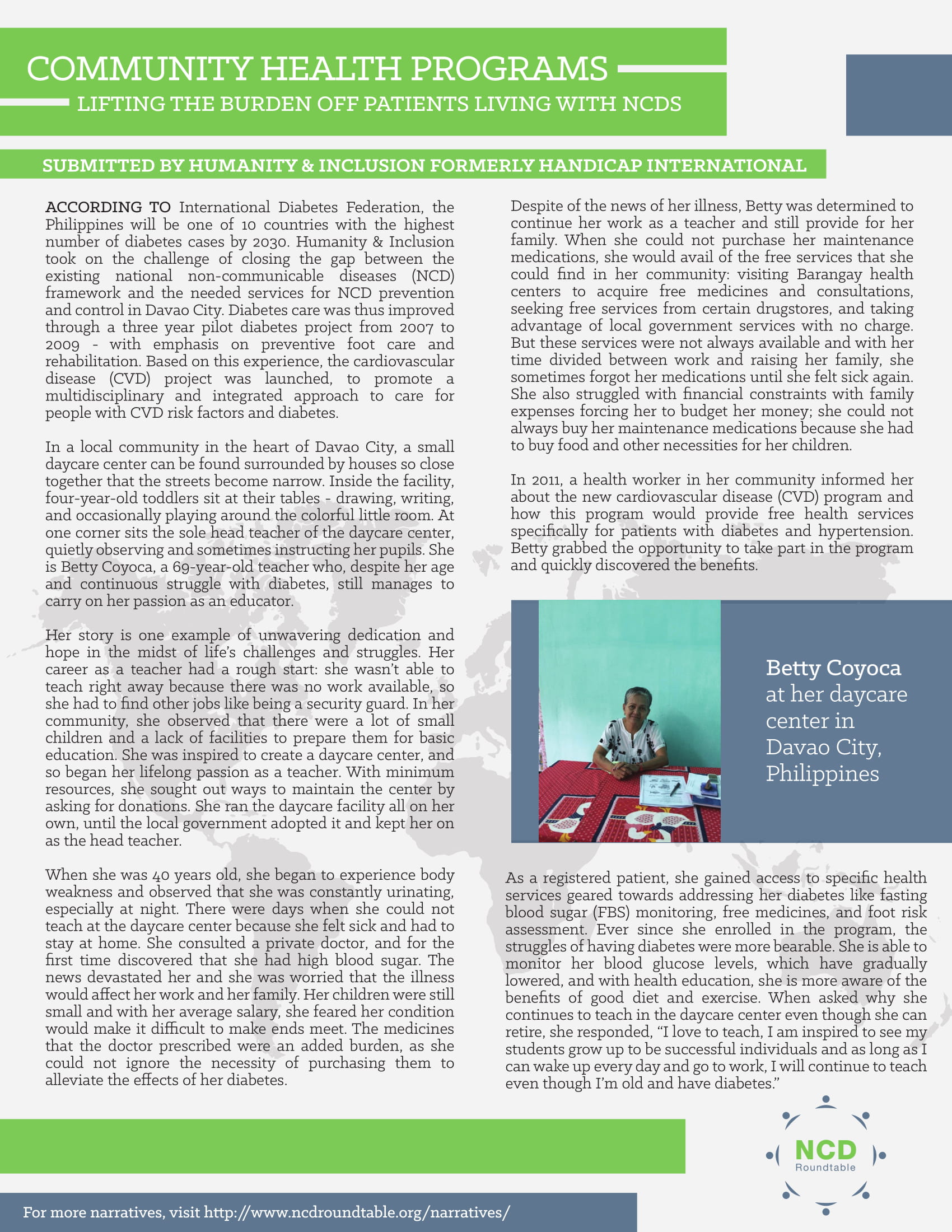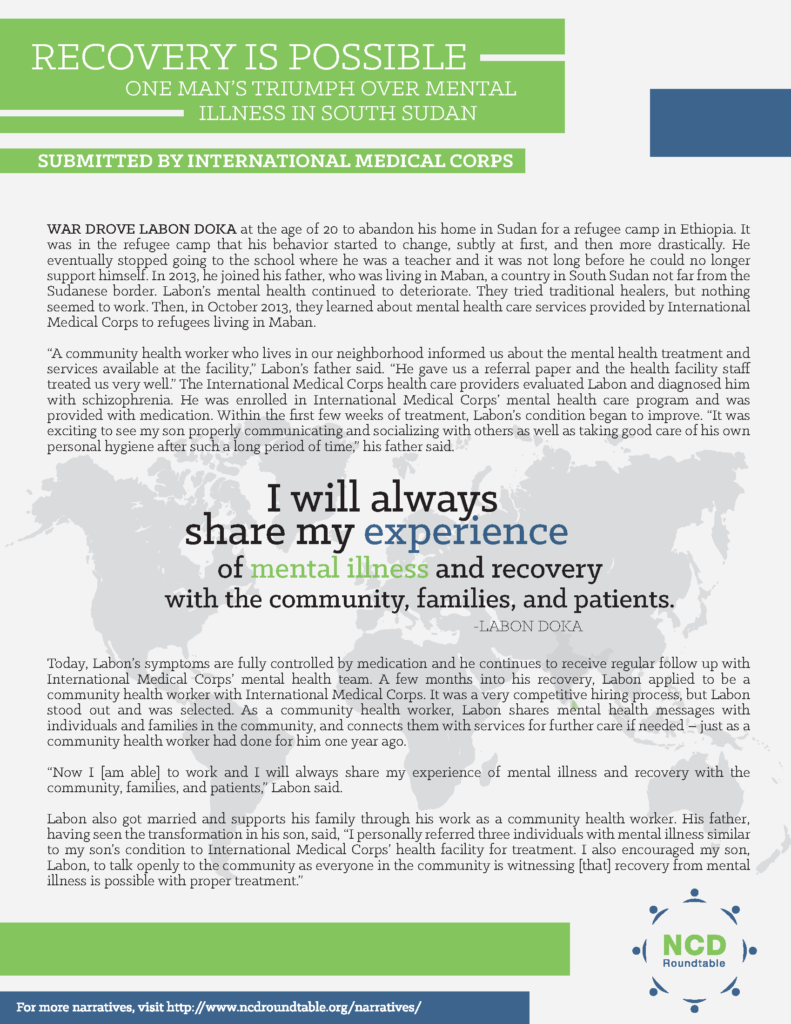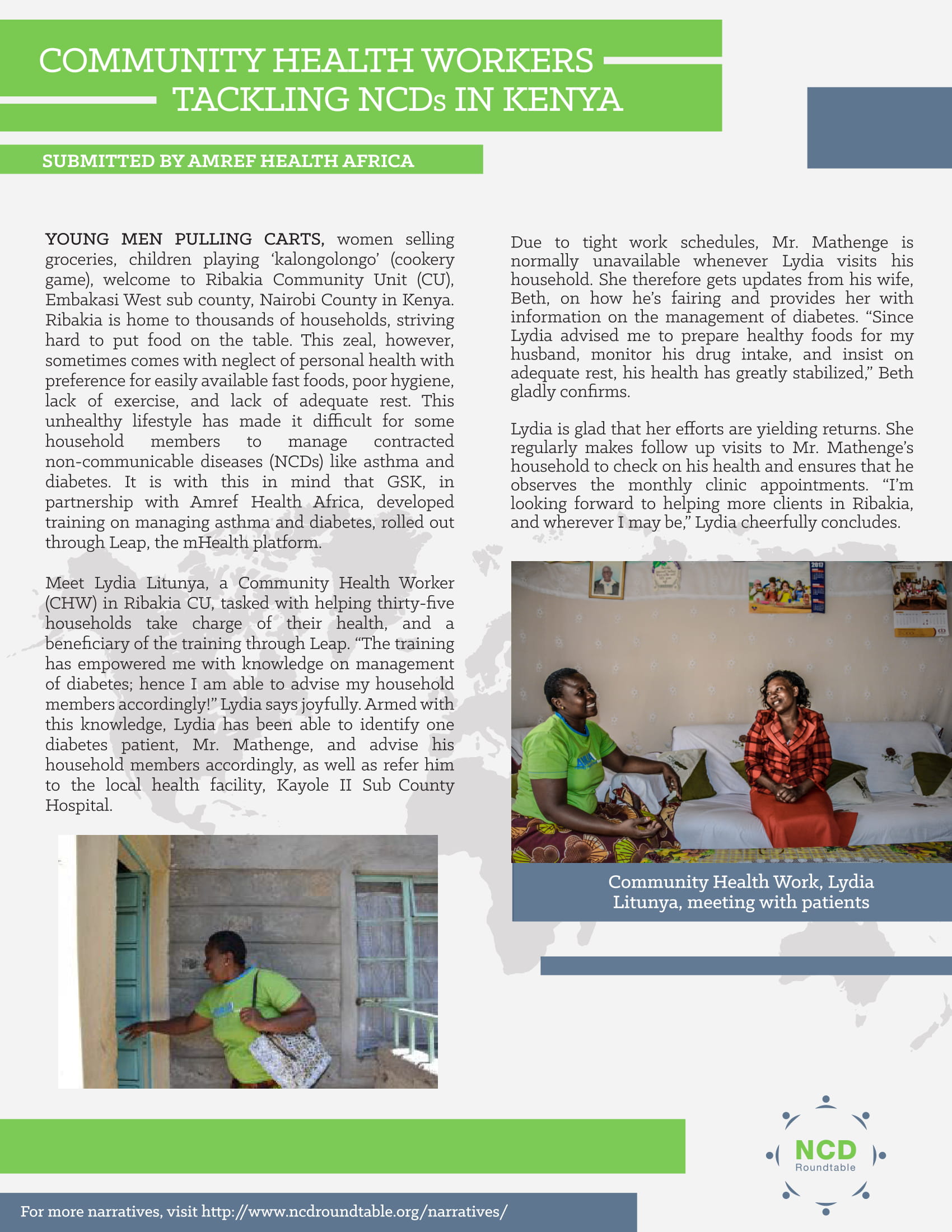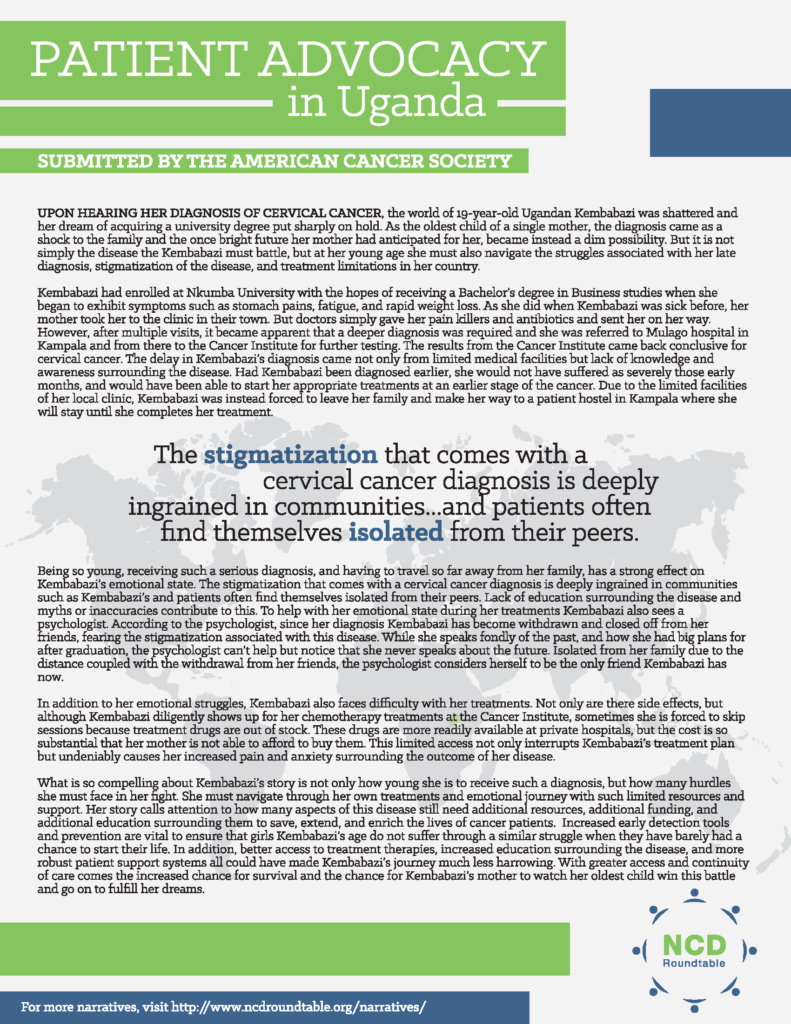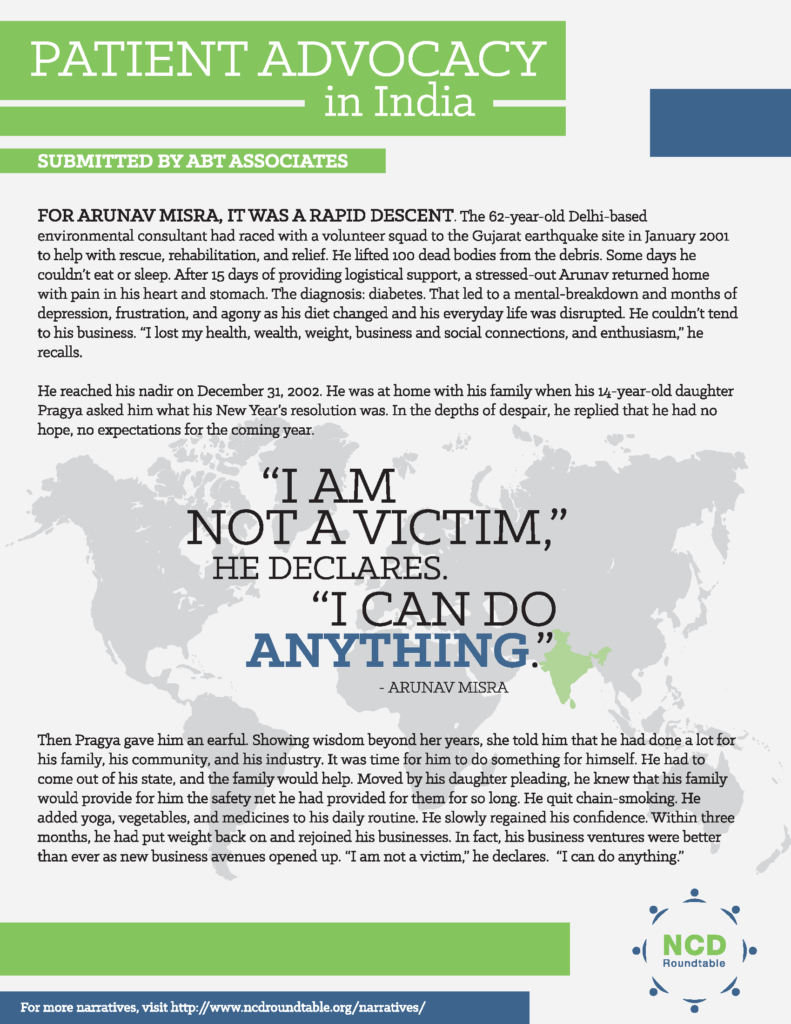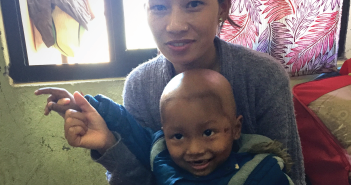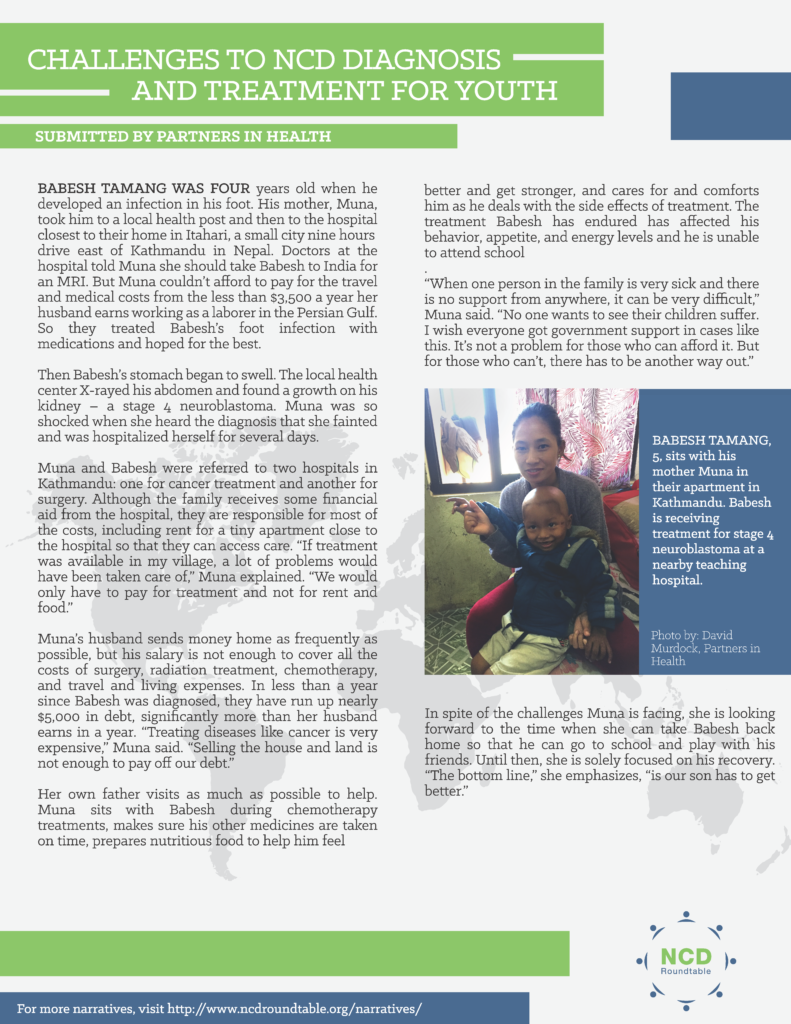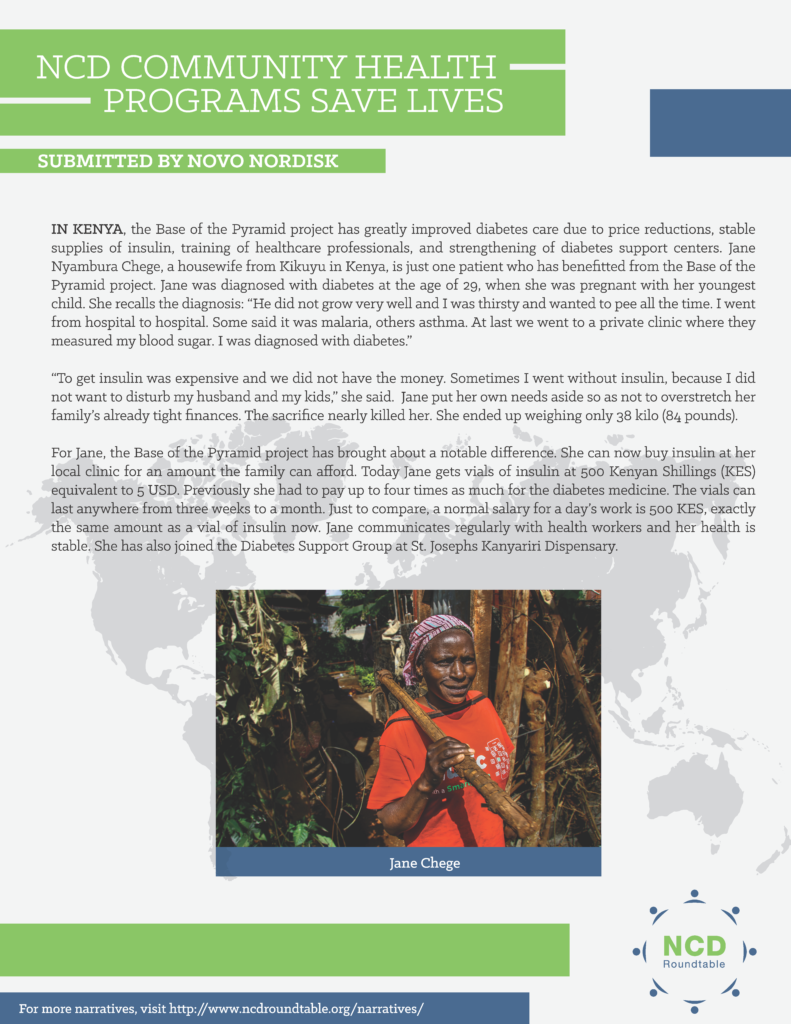
According to the Kenya Cardiac Society, nearly one billion people have high blood pressure globally; with two-thirds of those in developing countries. High blood pressure (HBP) and hypertension are some of the non-communicable diseases (NCDs) that can be life threatening if not properly managed. Lack of adequate information on managing these NCDs while leading healthy lives sadly means some community members succumb to them. Further, they often have no warning signs or symptoms hence many people do not know they have HBP or hypertension until it is too late.
Click on the image below to download the full success story.

